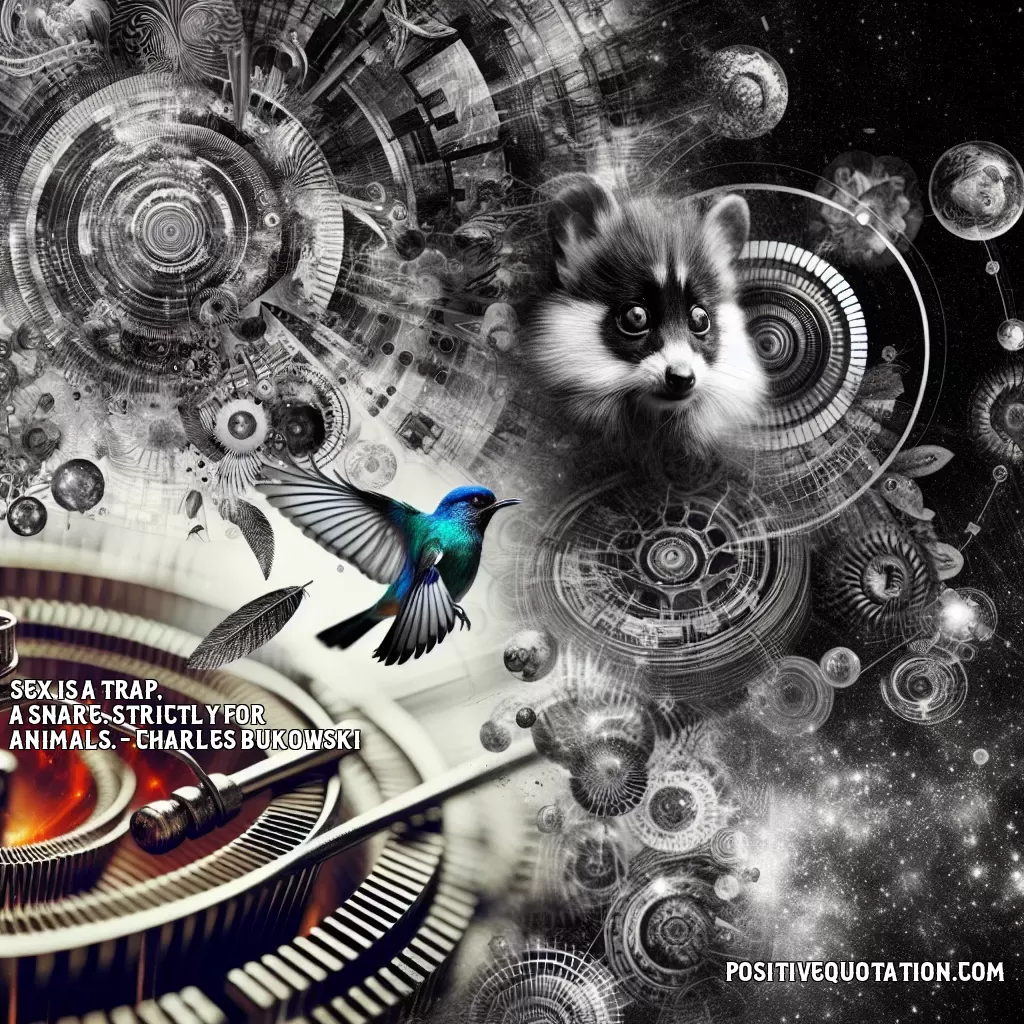
Sex is a trap, a snare. Strictly for animals. - Charles Bukowski
Author: Charles Bukowski
👁️ 12 views

Sex is a trap, a snare. Strictly for animals. - Charles Bukowski
👁️ 12 views
In this quote, Charles Bukowski characterizes sex as a "trap" or "snare," suggesting it is an ensnaring force that can capture and control individuals, much like a device used to catch animals. The mention that it is "strictly for animals" implies a reduction of sexual behavior to its most basic, primal instincts, aligning it with the natural world rather than with human intellectual or emotional pursuits. Bukowski, known for his raw, unfiltered reflections on the human condition, frequently explores themes of hedonism, desire, and the darker sides of human nature. By labeling sex as something animalistic, he challenges the often romanticized or idealized perceptions of sexual relationships in society. This reflects a cynical viewpoint that sees sex as a physical act driven by instinct, devoid of the higher emotional connections that can be associated with it. Additionally, the use of the words "trap" and "snare" evokes a sense of danger and inevitability, suggesting that engaging in sexual acts might lead individuals to consequences they cannot foresee or control. This perspective can be interpreted as an admonishment of how easily one can be captivated and perhaps diminished by purely physical pursuits, ignoring deeper, more meaningful human experiences. Bukowski's quote might prompt a consideration of how people navigate their desires and whether they allow their animalistic instincts to define their existence, or whether they strive for something beyond these primal urges. In essence, Bukowski's words challenge readers to reflect on the nature of human sexuality, questioning whether it is a profound part of the human experience or merely an instinctual behavior that binds us to our more animalistic roots.
Quote By: Charles Bukowski
Charles Bukowski was an influential American poet, novelist, and short-story writer born on August 16, 1920, in Andernach, Germany, and raised in Los Angeles, California. Known for his raw, unfiltered writing style and gritty depictions of urban life, Bukowski often drew from his own experiences of poverty, addiction, and relationships. His most famous works include "Post Office," "Factotum," and "Women," which explore the struggles of the downtrodden and marginalized in post-war America. Bukowski passed away on March 9, 1994, leaving behind a legacy that continues to resonate with readers and writers alike.
Bio added on: 2025-02-18 03:30:47